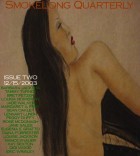I don’t remember my father. There are no photos of him that my mother kept hidden away. Only pictures of her, in long skirts and halter tops, one edge of the glossy paper jagged, the half where he might have stood, tie-died and bell-bottomed, torn away. The only untorn photo she saved, as a reminder of the kind of man he was or perhaps the kind to keep away from, was the one of her taken by the police. He’d left her for dead—-her face purple, her eyes swollen shut, his thumbprints etched into the soft skin of her neck.
I was never violent like my father, never raised a hand to my husband or God-forbid my child. Benign neglect. That heralded the death of the marriage, the handing over of full custody of my six-year-old child, a girl, dearly wanted. But even while pregnant I could not refrain from drinking. There was the usual staggering, the stammered apologies, the endless promises to stop. Sincere, well-meant promises. Arianne has learning problems, I hear. Slow to read, slow to grasp new concepts. Her father has a court order barring me from coming within a hundred feet of her.
I wonder if she feels the ache of loss, the emptiness which I, although undeserving of her love, once filled. Does she search through closets, pour through old shoe boxes, hoping to find photographs that may have been overlooked, not torn in half or discarded. Does she listen for the phone to ring, cock her head to pick up stray words of one-sided conversations, clutching expectation with the false and naïve optimism of youth? Or has she already grown hard and independent, like I had in my early teens, her manner belying her chronological years?
There are moments that live inside memory, a slide show unwittingly shown. My mother’s face, for example. I do not need a photograph to recall how she looked. That image is imprinted in my brain with more permanence than any photo. Photos fade with age; memories can trick you; you lose so many yet others remain vivid despite the passing years. I found her on her back, black tongue protruding through the swollen plum-colored mass which was her face. Sound welled up inside yet refused to leave my throat, a helpless lump of impotent silence.
That sound did not escape me even when I gave birth to Arianne. It was to the silence of the most immense pain that I pushed her out. And she was silent too, a gray lump of clay, back arched, arms and legs dangling motionless from a body devoid of air. Panic rose and threatened to overflow. The bustle of efficiency surrounded me. Massage and suction were applied to her lifeless form, until she stirred and cried at last. When I glanced at her face it was still the same purply-gray, her eyelids swollen, battered shut. The nurse caught my gaze, was quick to pull back the blanket wrapped around her infant form. “See how pink and rosy her chest is? The cord was wrapped around her neck when she was born. Broke a few blood vessels in her face, is all. She’ll be fine in a few days.”
My mother would be fine in a few days too, or so the doctor said when he sent her home. The telephone still rings late at night, her voice cutting through the haze of valium and sleep. “Did you know he used to take me dancing?” comes the slow slur of words, each one sliding precariously into the next. They need to adjust her medication again. “And flowers, he brought me flowers.”
I say nothing. While she talks I pour another drink, let it slide down my throat, feel the alcohol seep through my stomach lining and into my veins. These memories of hers precede my memories. They are not captured in photos. They are not planted in my brain. Yet they linger, all of them, a dark purple mass, thumbprints pressed into the hollow muscle of my heart.


 The core workshop of SmokeLong Fitness is all in writing, so you can take part from anywhere at anytime. We are excited about creating a supportive, consistent and structured environment for flash writers to work on their craft in a community. We are thrilled and proud to say that our workshop participants have won, placed, or been listed in every major flash competition. Community works.
The core workshop of SmokeLong Fitness is all in writing, so you can take part from anywhere at anytime. We are excited about creating a supportive, consistent and structured environment for flash writers to work on their craft in a community. We are thrilled and proud to say that our workshop participants have won, placed, or been listed in every major flash competition. Community works.